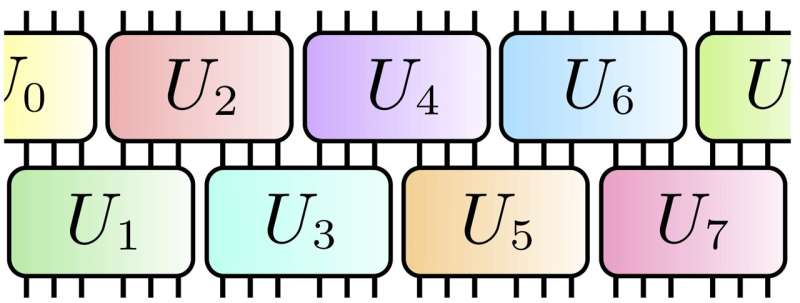
Understanding randomness is a cornerstone of numerous scientific and technological fields. From computer science and cryptography to engineering and weather forecasting, the ability to simulate real-world phenomena and predict outcomes hinges on our grasp of randomness. In the realm of quantum computing, randomness plays a crucial role, yet generating it has traditionally required a multitude of complex operations.
However, a groundbreaking study by Thomas Schuster and his team at the California Institute of Technology has revealed that quantum computers can produce randomness more efficiently than previously believed. This discovery could accelerate the development of faster and more efficient quantum computers, marking a significant advancement in the field.
The Quantum Shuffle: A New Approach
Unlike classical computers that use binary bits, quantum computers operate with quantum bits or qubits. The process of arranging these qubits in random configurations is akin to shuffling a deck of cards. As the number of qubits increases, so does the complexity and time required for shuffling. Moreover, excessive shuffling risks disturbing the delicate quantum state of each qubit, a factor that has historically limited the size of quantum computers capable of handling randomness-dependent applications.
The team at the California Institute of Technology has pioneered a method to generate random qubit configurations with fewer shuffles. By conceptualizing qubits as smaller blocks, they mathematically demonstrated that each block could independently generate randomness. Their research, published in Science, illustrates how these smaller blocks can be combined to form a well-shuffled sequence, potentially allowing larger quantum systems to utilize randomly arranged qubit sequences.
“Our results show that several fundamental physical properties—evolution time, phases of matter, and causal structure—are probably hard to learn through conventional quantum experiments. This raises profound questions about the nature of physical observation itself.”
Implications for Quantum Computing
The implications of this research are profound. By reducing the complexity of generating randomness, it may become feasible to build more powerful quantum computers capable of tackling tasks such as cryptography, simulations, and other real-world applications. This advancement could represent a significant leap forward in achieving the so-called “quantum advantage,” where quantum computers outperform their classical counterparts.
Furthermore, the researchers suggest that their findings may point to deeper, fundamental limits in our ability to observe nature. Quantum systems, by their very nature, obscure information rapidly, posing challenges to conventional quantum experiments. This raises intriguing questions about the nature of physical observation and the boundaries of human knowledge.
Looking Ahead: The Future of Quantum Research
As the scientific community continues to explore the potential of quantum computing, the work of Schuster and his colleagues offers a promising direction. By improving the efficiency of randomness generation, this research could pave the way for new breakthroughs in quantum technology.
Meanwhile, other researchers, such as Naoki Yamamoto, are also contributing to the field with studies like “Shrinking quantum randomization,” further expanding our understanding of quantum systems. The continued collaboration and innovation in this area underscore the dynamic nature of quantum research and its potential to revolutionize technology.
As quantum computing evolves, the insights gained from these studies will likely inform future developments, guiding researchers and technologists in their quest to harness the full power of quantum mechanics.






